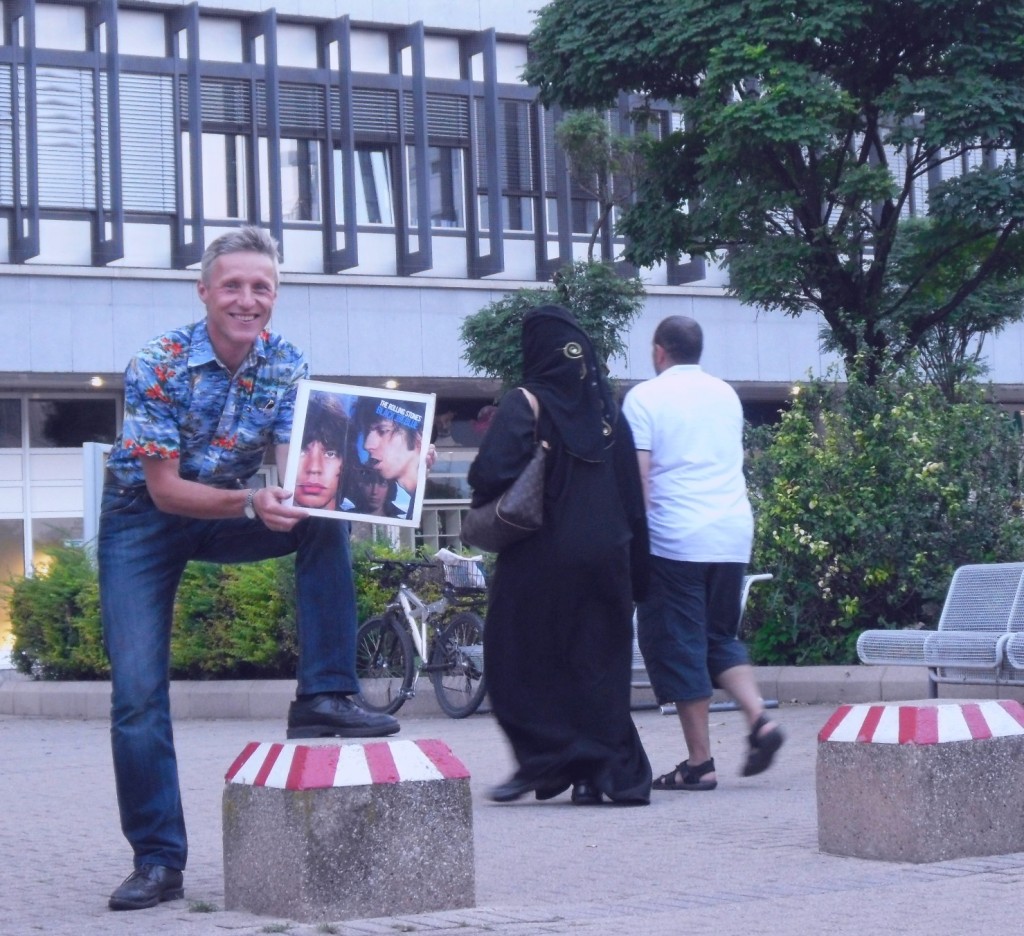Coming from the north-east into Munich,
perhaps one of the worst examples of 70th urban architecture awaits the
traveler: The Arabella high-rising building, which harbours not only a
large hotel of the same name, but office, medical practises and flats.
What is less known: In the basement of this block once resided the most
important music recording studio “Musicland”. It was of little domestic
importance, because the innovative sound that sound-engineer Mack and
pop-composer Giorgio Moroder produce there was more acknowledged by
international stars like Freddy Mercury, ELO, Led Zeppelin and Rolling
Stones. They recorded a few of their best songs and entire records at
Macks and Moroders Musicland Studios. For some of them, a special
regulation in the british tax-law might have played a role in their
decision to come here and live and work for at least a year in Germany,
thus evading the astronomic income taxes of the labour government. But
to large degree, it was the special Moroder sound and the savior-vive in
the Bavarian capital that made Munich so attractive to them. Freddy
Mercury liked to take the tram in the afternoon, to drive down across
the Isar river to hang around at the beer-garden “Chinese Tower”.
The Rolling Stones produced the entire “Black and Blue” album at Musicland in 1975, but had enough time to meet Uschi Obermeier, the most enchanting of the Munich communards.
At the end of the eighties, Mack and Moroder came under growing pressure from the property owner Schoerghuber, who tried to rise the rent for the studio. At the same time, a new subway-line was build, only a few meters aside the studio rooms. From now on, subway trains running along caused too much noise to permit further music recordings. Giorgio Moroder left Musicland and went to the US, and Mack relocated the entire studio to the Munich suburbs.
The Rolling Stones produced the entire “Black and Blue” album at Musicland in 1975, but had enough time to meet Uschi Obermeier, the most enchanting of the Munich communards.
At the end of the eighties, Mack and Moroder came under growing pressure from the property owner Schoerghuber, who tried to rise the rent for the studio. At the same time, a new subway-line was build, only a few meters aside the studio rooms. From now on, subway trains running along caused too much noise to permit further music recordings. Giorgio Moroder left Musicland and went to the US, and Mack relocated the entire studio to the Munich suburbs.
About ten years later, rich Arabic
families from the Emirates and Saudi Arabia discovered Munich as a save,
convenient and pleasant place to spend the summer time, escaping the
heat at home, spending large sums at daily shopping walks and visit
high-class medical clinics for annual check-ups. It might be, that the
Arabs were fascinated by the idea that the name “Arabella-Hotel” was a
reference to their home.
I tried with little success to shoot a
picture with one of them, and the record cover of the Stones “Black and
Blue” in front of the former entrance to the Musicland studios. It took
me several days to find out a trick, since none of the black veiled
women or their husbands were very fond of appearing on a photograph,
with reference to the Stones rock music.

No comments:
Post a Comment